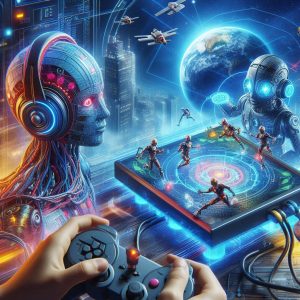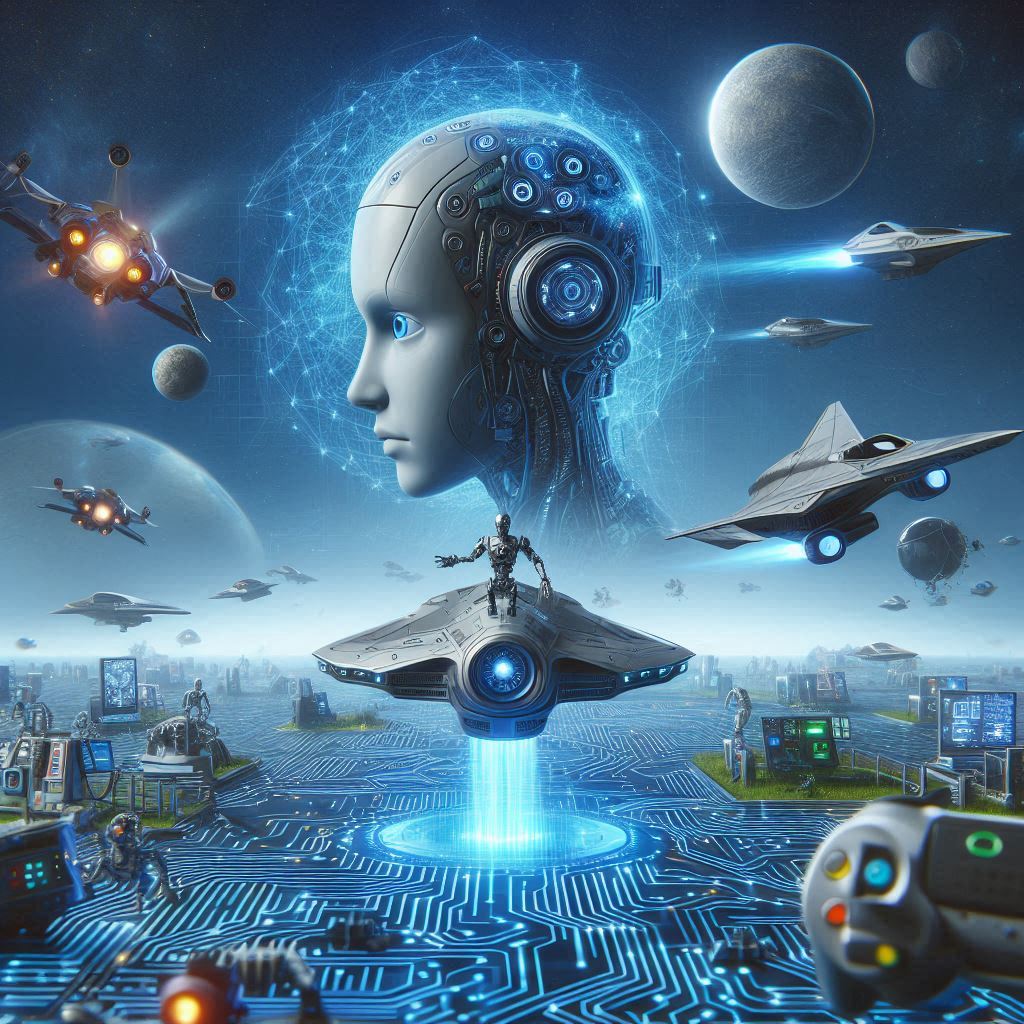AI RevolutionTransforming Gameplay with Artificial Intelligence
Enhancing Player Experience
One of the most striking impacts of AI on gameplay is its ability to enhance player experience through dynamic environments, adaptive challenges, and personalized content. Games like Fortnite and Cyberpunk 2077 leverage AI algorithms to create responsive worlds where player actions influence not just their immediate surroundings but also shape the broader narrative arc of the game.
AI-Driven Gameplay Mechanics
AI-driven gameplay mechanics have evolved from static rule-based systems to sophisticated models capable of learning and adapting in real-time. For instance, in strategic games such as Chess and Go, AI opponents like AlphaZero have demonstrated superhuman capabilities, challenging even the most seasoned players.
AI in Game Development
Behind the scenes, AI is streamlining game development processes, from procedural content generation to bug detection and quality assurance. Companies like Unity and Epic Games integrate AI tools that automate repetitive tasks, allowing developers to focus more on creativity and innovation.
Ethical Considerations and Challenges
However, the rise of AI in gaming also raises ethical considerations, particularly concerning data privacy, algorithmic bias, and the unintended consequences of AI-driven decision-making within virtual worlds. Game developers and policymakers are increasingly tasked with addressing these challenges to ensure AI enhances rather than detracts from the gaming experience.

Future Directions and Innovations
Looking ahead, the future of AI in gaming promises even greater integration with virtual reality (VR) and augmented reality (AR), creating immersive experiences that blur the lines between the real and digital worlds. Innovations in natural language processing (NLP) and emotional AI are set to revolutionize player interactions, making game characters more lifelike and responsive than ever before.
| Technology | Description |
|---|---|
| Machine Learning | Enables AI to learn from data and improve gameplay based on player behavior. |
| Computer Vision | Used in VR/AR to enhance visual realism and interaction within virtual environments. |
| Natural Language Processing (NLP) | Facilitates interactive storytelling and dialogue systems in narrative-driven games. |
| Emotional AI | Enhances player immersion by enabling game characters to express emotions and adapt behavior. |
Conclusion
In conclusion, the AI revolution in gaming is not just about technological advancement but also about redefining the boundaries of creativity and player engagement. As AI continues to evolve, its impact on gameplay will only deepen, offering new possibilities for developers and players alike. By addressing the challenges and harnessing the innovations AI brings, the future of gaming looks brighter and more immersive than ever.
This article explores how AI is transforming gaming, from enhancing player experiences to revolutionizing game development processes. It also touches on ethical considerations, future directions, and key technologies driving this transformation.
